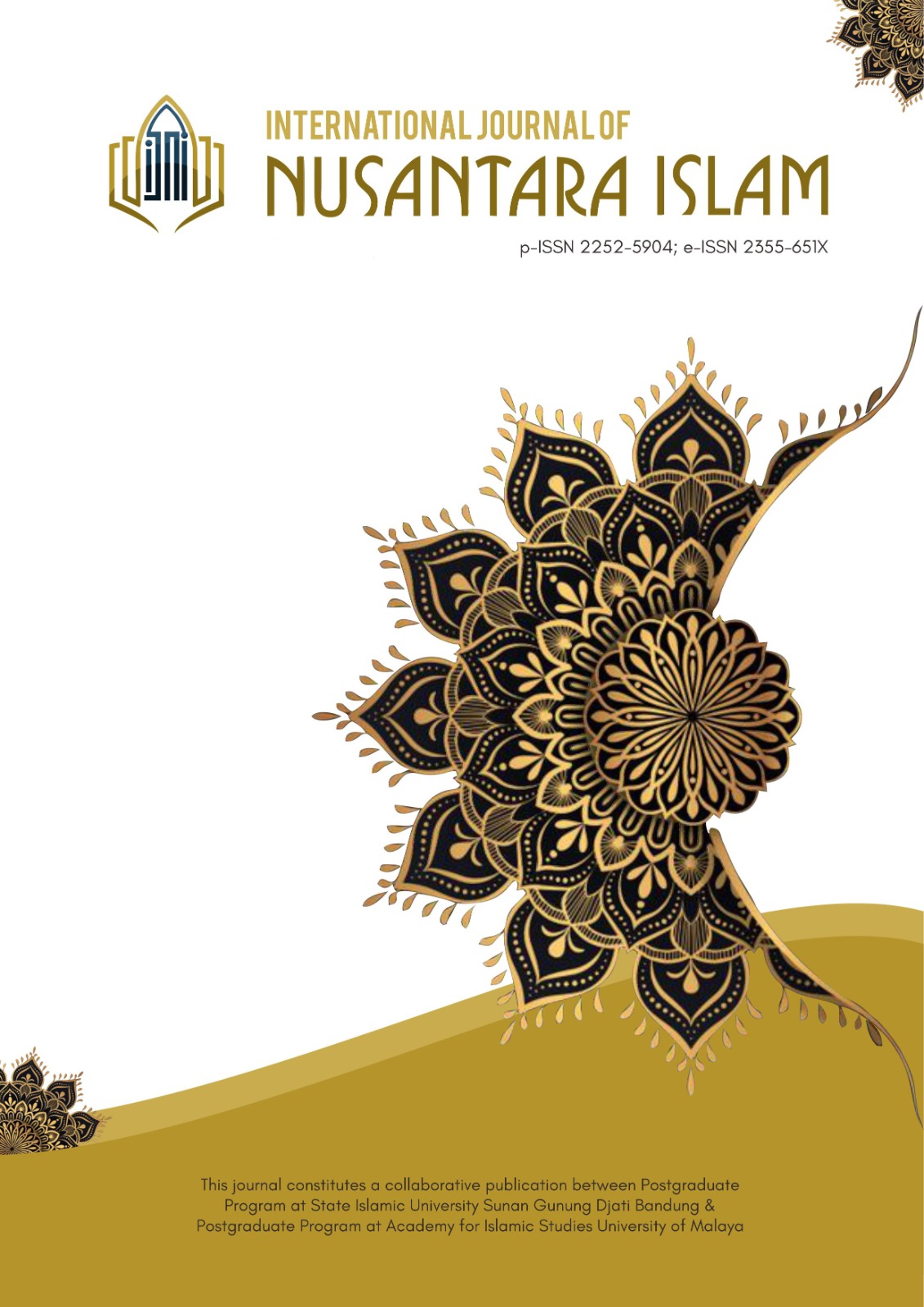Strategic Management Teacher Performance Development to Improve Learning Quality
Main Article Content
Abstract
Article Details
The Authors submitting a manuscript do so on the understanding that if accepted for publication, copyright of the article shall be assigned to International Journal of Nusantara Islam, Sunan Gunung Djati State Islamic University.
The copyright encompasses exclusive rights to reproduce and disseminate articles in all forms and media, including reprints, photographs, microfilm, and similar reproductions, as well as translations. Some or all of the contents of this journal can be stored in databases and transmitted in any form and media without the need for written permission from the International Journal of Nusantara Islam, Sunan Gunung Djati State Islamic University.
The Editors and the Advisory International Editorial Board make every effort to ensure that no wrong or misleading data, opinions or statements be published in the journal. In any way, the contents of the articles and advertisements published in the International Journal of Nusantara Islam (IJNI) are sole and exclusive responsibility of their respective authors and advertisers.
References
Arikunto, S. (2004). Dasar-dasar Supervisi. Rineka Cipta.
Dharma, A. (1991). Manajemen Prestasi. Rajawali Press.
Donnelly, Gibson, & Ivancevich. (1996). Manajemen (Z. Ichyaudin, Trans.; Edisi Sembilan Jilid 1). Erlangga.
Fattah, N. (2009). Landasan Manajemen Pendidikan. PT Remaja Rosdakarya Offset.
Henry, S. (2015). Manajemen Sumber Daya Manusia. STIEY.
Hunger, J. D., & Wheelen, T. L. (2000). Strategic Management. Prentice Hall.
Koontz, H., O’Donnell, C., & Weihrich, H. (1980). Management. McGraw-Hill.
Kurniawan, H. (2018). Implementasi Manajemen Sumber Daya Guru Dalam Meningkatkan Mutu Pendidikan Di Madrasah Aliyah Negeri (MAN) Kualasimpang. ITTIHAD, Vol. II, No.2, 144–153.
Mowday, R. T., Steers, R. M., & Porter, L. W. (1979). The Measurument of Organizational Commitment. Journal of Vocational Behavior, 14(2).
Mulyasa, E. (2014). Manajemen Pendidikan Karakter. Bumi Aksara.
Mulyasa, E. (2017). Pengembangan dan Impelementasi Kurikulum 2013. PT Remaja Rosdakarya.
Nawawi, H. (2000). Manajemen Strategi Organisasi Non-Profit Bidang Pemerintahan. Gadjah Mada University Press.
Nur, M., Harun, C. Z., & Ibrahim, S. (2016). Manajemen Sekolah dalam Meningkatkan Mutu Pendidikan pada SDN Dayah Guci Kabupaten Pidie. Jurnal Administrasi Pendidikan, Pascasarjana Universitas Syah Kuala, Vol. 4 No. 1, 93–13.
Pearce, J. A., & Robinson, R. B. (2000). Strategic Management: Formulation, Implementation, and Control. Irwin/McGraw-Hill.
Poerwadarminta, W. J. S. (1993). Kamus Besar Bahasa Indonesia. Balai Pengembangan Bahasa.
Sallis, E. (1993). Manajemen Mutu Pendidikan (A. A. Riyadi & Fahrurozi, Trans.). IRCiSoD.
Sugiyono. (2010). Metode Penelitian Pendidikan Pendekatan Kuantitatif, kualitatif, dan R&D. Alfabeta.
Sukmadinata. (2004). Kurikulum dan Pembelajaran Kompetensi. Kesuma Karya.

